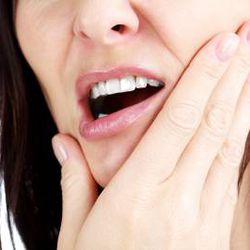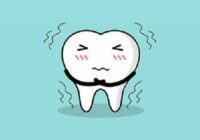
April has been National Stress Awareness Month for twenty-five years. It might seem like stress is all mental, but it can affect you physically in serious ways. Stress can cause headaches, depression, insomnia, upset stomach, mouth sores, low energy, dry mouth and clenching of the jaw or grinding of the teeth.
Surprisingly, stress is often noticed first at dental appointments. This is because many of the physical symptoms of stress are manifested in the mouth or jaw.
Have you ever found yourself clenching your teeth when stress or anxious? When this happens, you’re likely placing hundreds of pounds of pressure on your teeth. Not only can grinding and clenching weaken and eventually fracture teeth, but it can also damage the joint that controls your jaw. The medical term for grinding and clenching the teeth is called bruxism. One of the reasons it often goes undiagnosed is because many people experience bruxism almost exclusively when sleeping and may not know they’re doing it.
The temporomandibular joint connects your jaw to your skull and can be felt by placing your hands in front of your ears while opening and closing your mouth. This joint can be injured by the symptoms of bruxism. TMJ disorders occur when damage is done to this joint by trauma, overuse, genetics or misalignment. Common symptoms can include:
Jaw pain
Ear pain
Ringing in the ears
Headaches and migraines
Difficulty or pain when chewing, speaking or opening mouth
Fatigue in the facial or jaw muscles
Stiffness in jaw, neck or shoulders
Dr. Martin Abelar, DDS, a San Diego area neuromuscular dentist who focuses on treating jaw pain with non-invasive measures says that stress can play a big role in the development or aggravation of TMJ disorder.
“When the joint is out of alignment or inflamed from the grinding and clenching of bruxism, pain and discomfort can spread from the jaw to the head, neck, shoulders and even cause full body aches,” Abelar said. “This is due to the fact that the soft tissues, muscles and nerves can all be affected by the symptoms. Because the pain isn’t localized to the jaw, many people seek help from a general doctor who may prescribe pain medicine when nothing specific is found wrong. Over time the condition continues to worsen since the cause of the pain wasn’t treated.”
Many anti-anxiety medications also cause side effects that can alter the health of the mouth. Some cause acid reflex, nausea that leads to vomiting and dry mouth. These symptoms all create environments in the mouth that can encourage the development of tooth decay.
During the month of April, focus on finding natural ways to lower your stress if you’re experiencing any of these concerns. A few minutes of deep breathing and meditation in the morning and before bed has been proven to lower stress levels throughout the day. You don’t have to do anything special to meditate or try a quick yoga session to start your day. The internet is full of videos that will help guide you through any of these practices right from your own home. Aromatherapy is another simple way to create a more relaxing atmosphere. Find a few essential oils that are helpful for stress reduction and relaxation. Together with a small oil diffuser, you can turn your home or workplace into a sanctuary of smells. Other ideas include journaling to organize your thoughts, taking a walk in the afternoon to clear your mind, reducing caffeine and sugar intake, making exercise a part of your daily routine and finding something you enjoy and doing it each and every day.






